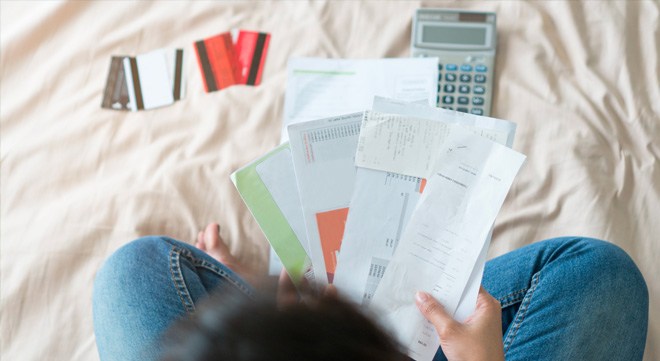If your salary disappears within a week, leaving you reliant on credit to get through the month, you’re not alone. DebtBusters’ Debt Index for the fourth quarter of 2024 shows that many South Africans are in the same boat, with rising dependence on personal loans, one-month loans, and credit cards.
DebtBusters’ Debt Index provides a detailed insight into the financial health of South Africans seeking debt counselling. By analysing applicant data, it highlights key indicators, such as the debt-to-income ratio, which shows how much of a consumer’s earnings go towards debt, and debt servicing, which measures the portion of income spent on repayments.
The index also differentiates between unsecured debt – such as credit cards and personal loans, which lack asset backing – and asset-based debt, including home and vehicle loans.
Looking more closely at unsecured debt, 82% of DebtBusters’ new applicants have a personal loan (at the time they apply for debt counselling). More alarmingly, 52% come with a one-month (payday) loan, and 28% of new applicants rely regularly on their credit cards.
Sharply tying into applicants’ shortage in cash is the continued rise in debt service ratios. Compared to previous quarters, the debt service ratio is higher, where consumers need 68% of their take-home pay to service debt – a significant increase from previous quarters and at the highest level since 2017.
Those taking home R35 000 or more a month need to use 74% of their income towards debt repayments, and their total debt to annual net income ratio is 187%.
Those taking home R5 000 or less a month use 75% of their income towards debt repayments.
Currently, the median debt-to-annual-income ratio is 113%, indicating that consumers are still experiencing the effects of interest rate increases that began in November 2021, and – despite some respite – remain elevated.
So, yes, financial strain remains a challenge, but on the bright side, people are feeling more optimistic about it.
Benay Sager, the executive head of DebtBusters, says that 2024 was a year of two “chapters”.
The first was full of financial anxiety: loadshedding, high interest rates, high food inflation, and worries about the upcoming national election.
The second “chapter” was one of financial relief: no loadshedding, lower food inflation, relief about the formation of a coalition government, and being able to access retirement funds via the two-pot retirement system.
“As a result of the second ‘chapter’, 2024 was a better year for the South African consumer than 2023, and consumers’ confidence about how the future will shape up is more positive as we enter 2025,” says Sager.
But optimism can only take you so far.
“While consumers’ financial confidence may have improved, some trends have not. Income growth – while better than in years past – is still behind expense growth: since 2016, electricity tariffs increased by 135%, petrol price increased by 72%, and inflation’s compounded impact is 44%,” says Sager.
This translates into getting much less bang for your buck.
Compared to 2016, those consumers who applied for debt counselling in the fourth quarter of 2024 had 42% less purchasing power. Nominal incomes were 2% higher than 2016 levels. However, when cumulative inflation growth of 44% is factored in for the same eight-year period, consumers’ purchasing power diminished by 42%.
Those taking home R35 000 or more a month had better news: the nominal incomes for this band increased by 10% since 2016, the first such significant increase for a long time.
“While the inflation impact has subsided, on average consumers are feeling like they are taking home 42% less today in real terms than they did in 2016,” says Sager.
The latest index also noted unsustainably high levels of unsecured debt for top earners. Unsecured debt levels were on average 29% higher than that in 2016. For those taking home R35 000 or more, the unsecured debt levels were 60% higher.
“While this is only slightly higher than inflation growth, in the absence of meaningful salary increases, it signals that consumers still need to supplement their incomes with unsecured credit,” says Sager.
In some good news, the average interest rate for unsecured debt has come down from its eight-year high and is now 24.6% a year.




None of the reports have factored in the effects of Ramaphosa signing off the dreaded EWC Bill.
We see a frozen property market, and without protection of property rights we can look forward to rapid negative consequences.
We are now just like Zimbabwe, regardless of what the fools say. The talking heads at the DA seem oblivious to the fact that we are screwed & they did it to themselves ( and to us ). Thanks a lot.
When reality becomes clear, how long will it take for the panic to set in ?